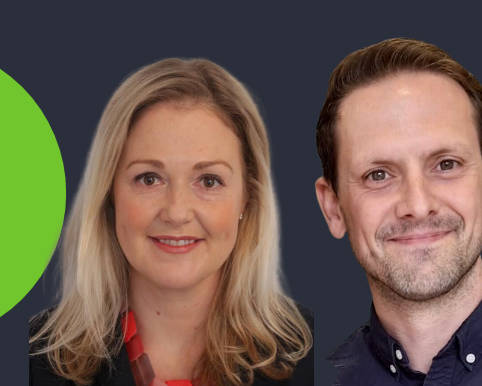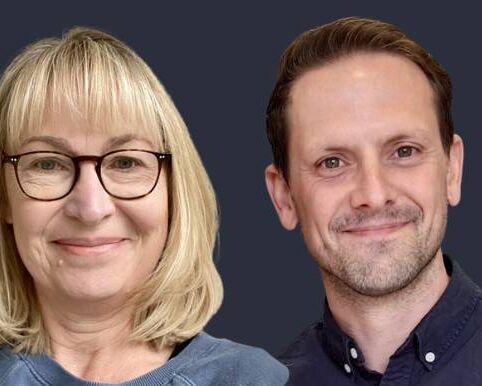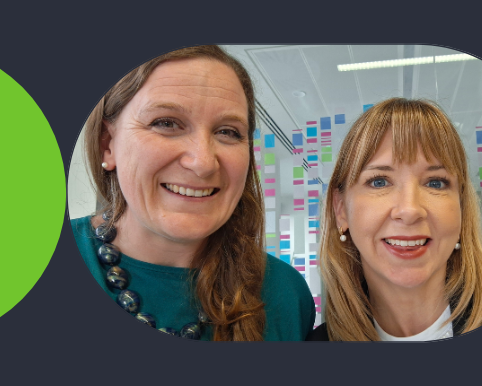View from the Participant Panel
By Jillian Hastings Ward on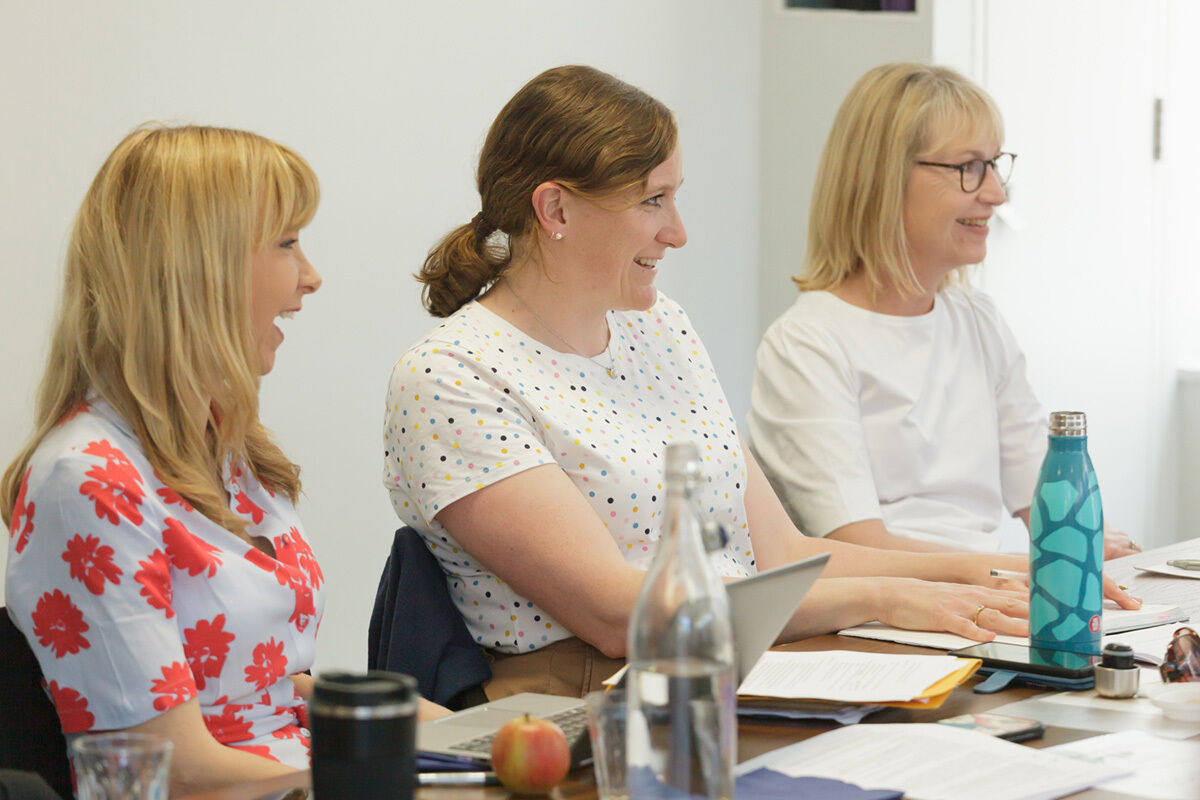
From left: Participant Panel Vice-Chair Rebecca Middleton, Chair Jillian Hastings Ward and member Helen White.
Jillian Hastings Ward is the Chair of the Participant Panel, representing the interests of Genomics England participants. Her family joined the 100,000 Genomes Project in 2015, in search of answers for her young son who is severely disabled. Jillian reflects on the Participant Panel's recent contributions to Genomics England and the wider genomics ecosystem.
Recent years have been especially tough for many patients and families living with rare conditions and cancer, and this winter seems likely to be equally challenging. However, our Participant Panel members have continued to make time to share their lived experience and skills with the leadership team at Genomics England. We meet regularly to hear what Genomics England have been doing with our data, and to help shape their plans for the future. Panel members have continued to contribute to its three core committees (Ethics Advisory Committee, GECIP Board and Access Review Committee), engage with NHS colleagues setting up the NHS Genomic Medicine Service, contribute to the work of regional genomics centres, and as Panel Chair, I have joined the UK National Genomics Board, bringing patient/participant perspectives directly into the delivery of the UK genomics strategy [Genome UK]. In addition, our Vice-Chair Rebecca Middleton sits on the oversight group of the Newborn Genomes Programme, exploring the implications of using whole genome sequencing in newborn screening.
We have welcomed and supported the GenOMICC COVID-19 Study, led by the University of Edinburgh, and its efforts to ensure a diverse group of volunteers were recruited. We have recently recruited a Panel member from this study. In the year ahead, we are looking forward to expanding our Panel membership to include more GenOMICC study participants or their relatives, and patients who sign up to participate in research via the NHS Genomic Medicine Service. If you are part of these cohorts, and interested in joining the Panel, please get in touch via our web page.
We want more people affected by genomics research to be involved when projects are designed and undertaken. Our ultimate aim is to see the co-creation of studies where participants and researchers work together as a team. Among the consequences of the COVID-19 pandemic have been a shift in public awareness and acceptability of the use of health data in research, a greater understanding of our own vulnerability at every level of society and a wider appreciation of our unique health system. We will continue to play an active role within Genomics England and the wider debates, supporting the strategic delivery of Genome UK.

A diversity of voices and viewpoints
We are privileged to represent the views of participants and patients whose data is stored with Genomics England. We want to represent the broadest possible range of viewpoints and lived experiences. We are keen to hear from a diverse range of voices, so we can effectively represent the many communities whose data is held by Genomics England. If your data is held by Genomics England either via the 100,000 Genomes Project, through the NHS GMS or the GenOMICC COVID-19 Study and you are interested in joining the Panel, please get in touch.
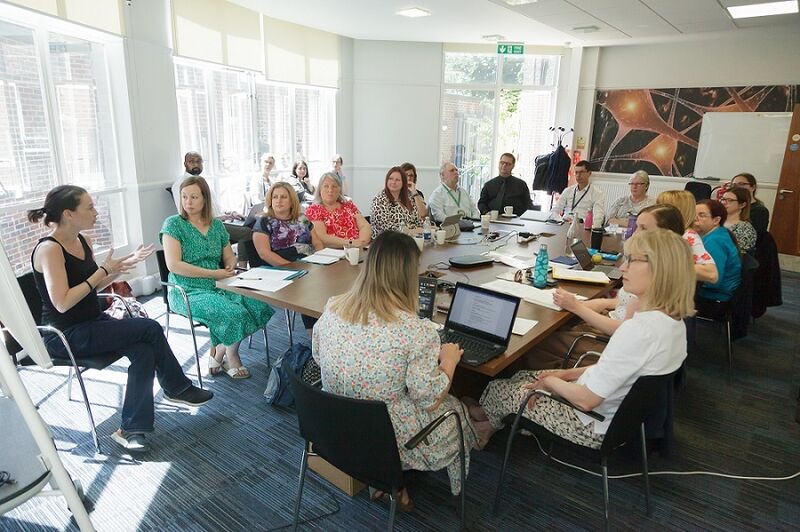
The Participant Panel in action at a recent meeting, joined by leaders from across Genomics England.
From Genomics England
Genomics England’s commitment to 100,000 Genomes Project participants
Genomics England has returned initial results for the 97,000 people involved in the 100,000 Genomes Project to the NHS. This is a huge achievement and a landmark to be celebrated.
Now the real work begins. Around a third of the 100,000 Genomes Project participants were recruited through the cancer arm of the project. We know that cancers evolve and can change following treatment. So, if a participant’s cancer were to return and further testing is being considered, they may be eligible to have another biopsy collected for whole genome sequencing through the NHS Genomic Medicine Service.
However, the situation for the remainder of participants with rare diseases (including inherited cancers) is different. About 25% of these participants have a diagnosis, but the rest live with ongoing uncertainty. We simply do not yet know enough about the genome to be able to identify a cause.
We owe all the participants in the 100,000 Genomes Project a great deal. It was their generously donated data that allowed Genomics England to develop the systems, services and research environment that now enables many more people to get a diagnosis first time. Their data is the foundation of all future genome services in the NHS.
As new cohorts come into the National Genomic Research Library and as Genomics England moves into the new phase of its life, we want to ensure that the original participants are not forgotten.
With the support of the Genomics England Board, our Participant Charter will ensure that our 100,000 Genomes Project patients are not left behind and their diagnostic journeys are supported and assisted by being part of this ground-breaking whole genome sequencing (WGS) project.
We are making four core commitments to our participants:
Our commitment to reanalysis
Genomics England is aiming to increase analysis of the 100,000 Genomes Project cohort through looking again at the cohort who received an initial negative finding (a negative finding means that the laboratory did not find a change that is known to affect health or development in the gene, chromosome, or protein under consideration). We will report any new findings to participants and their doctors. Together, we will encourage more researchers in each of the specific subject research domains (GECIPs) who are working in the Research Environment to use the data and to share their findings more widely, with research participants as well as with other researchers.
Our commitment to additional findings
As part of participants’ consent for the 100,000 Genomes Project, they were asked if they wanted us to look for additional health information in their genome sequence; we call these ‘additional findings’. We are now returning the additional findings results and we are working together with the NHS and our Participant Panel on how these are shared with our participants.
We expect that nearly all participants will have received their additional findings results by the end of 2022. Any participants are expecting to hear these results but have not heard back by this time, or who have other queries about this process can contact the Service Desk which is managed by Genomics England.
Our commitment to new treatments
Participants want Genomics England to use their data and to allow selected companies to access it too, because they know that companies like these will develop the new treatments and diagnostics vital to the future of people with their condition. All companies who are allowed access to the data entrusted to Genomics England are screened by the independent Access Review Committee (ARC). Projects being undertaken by partner companies working with data in the Genomics England Research Environment can be browsed in the Genomics England Research Registry, which includes lay summaries. We regularly review the progress of all these companies and help them share their discoveries and make connections with participants and their doctors who may be interested in specific topics or discoveries.
Our commitment to participant involvement
Participants will always be involved in the governance of their data, through the Participant Panel, the Access Review Committee, the GECIP Board and the Ethics Advisory Committee. And, beyond this, we want participants and their families to be able to ask us questions about their data, raise concerns and to contribute their ideas about research that we might undertake in the future. If you are a participant with a query, contact our Service Desk.
In short, to the participants of the 100,000 Genomes Project, we thank you, we have not forgotten you, and we will continue to work for you.
